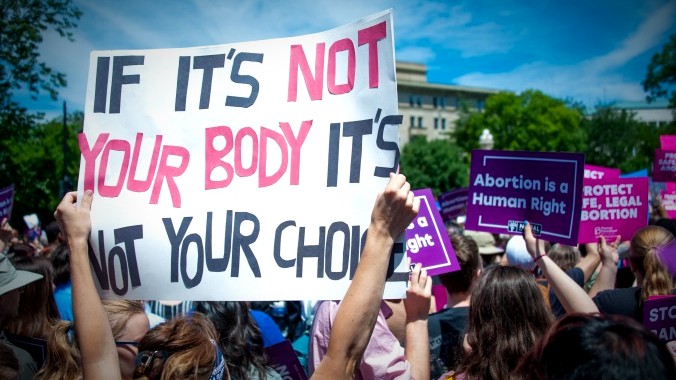Tennessee Is the Latest State to Try and Criminalize People for Helping Minors Get Abortion Care
Among the multiple, fearmongering issues is the fact that the so-called “abortion trafficking” bill doesn't offer exceptions for victims of child sexual abuse.
Photo: Shutterstock Politics
On Wednesday, the Tennessee Senate passed a bill to make it illegal to help minors travel out-of-state for abortion care without parental consent. The so-called “abortion trafficking” bill, which now advances to the state House, doesn’t offer exemptions for minors who might have been raped by their parents or guardians.
The Senate bill states that an adult who “recruits, harbors, or transports a pregnant unemancipated minor within this state for the purpose of” helping them access “criminal abortion” has committed “the offense of abortion trafficking of a minor.” The bill establishes that those convicted of breaking the law would be charged with a Class A misdemeanor carrying a one-year imprisonment sentence. Meanwhile, a version of this bill in the state House treats violations as a Class C felony which can carry up to a 15-year prison sentence and up to $10,000 in fines.
-

-

-

-

-

-

-

-

-

-

-

-

-

-

-

-

-

-

-

-

-

-

-

-

-

-

-

-

-

-

-

-

-

-

-

-

-

-

-

-








































